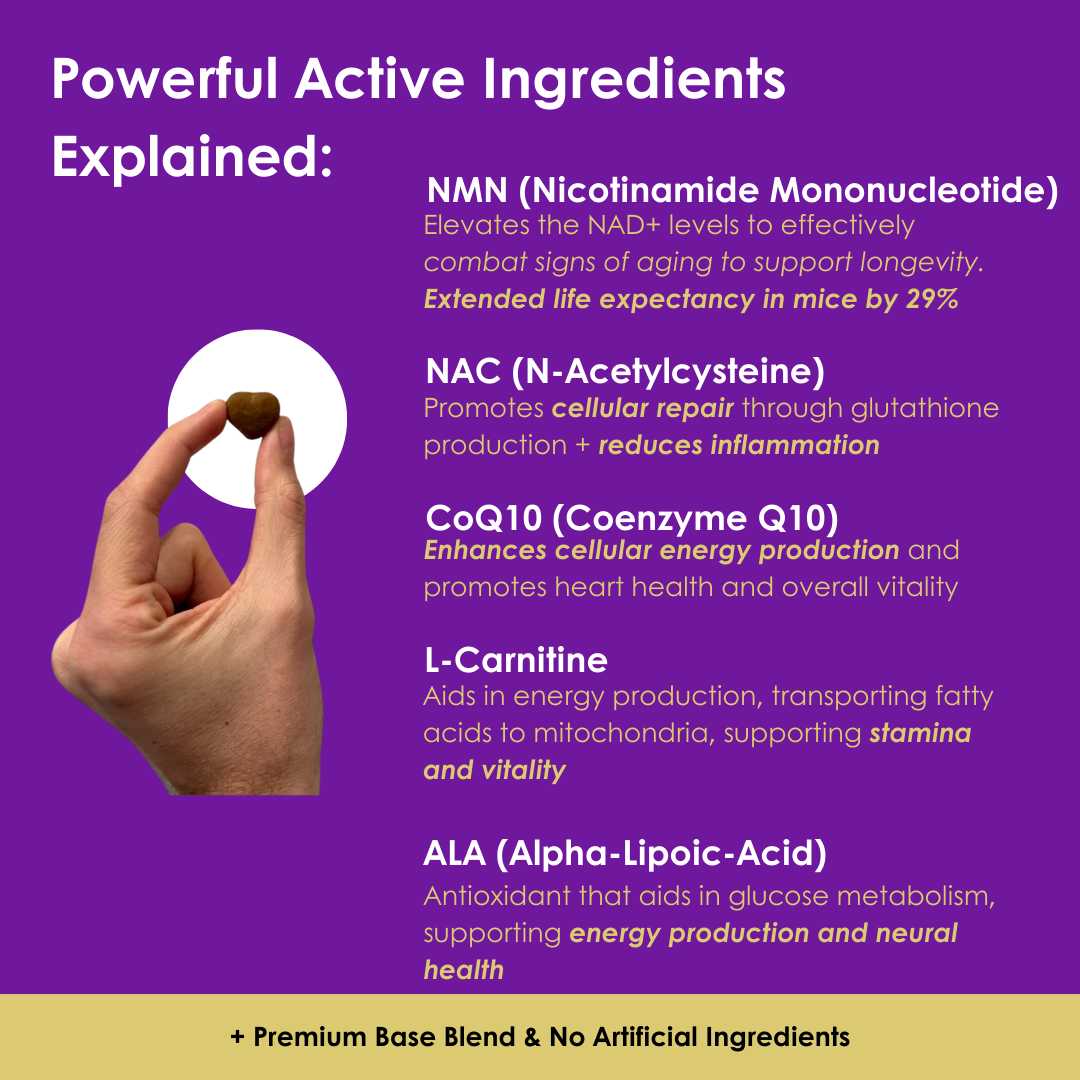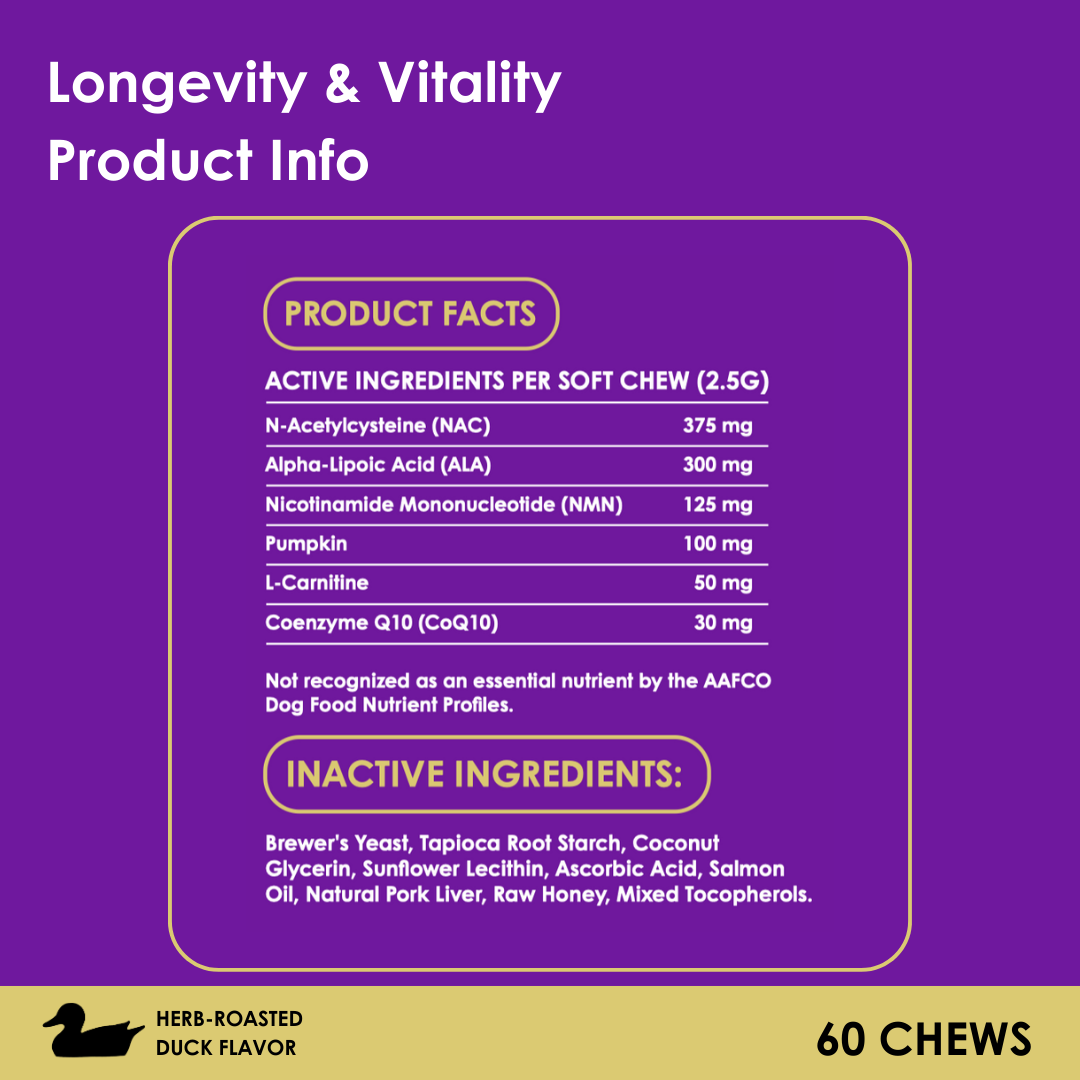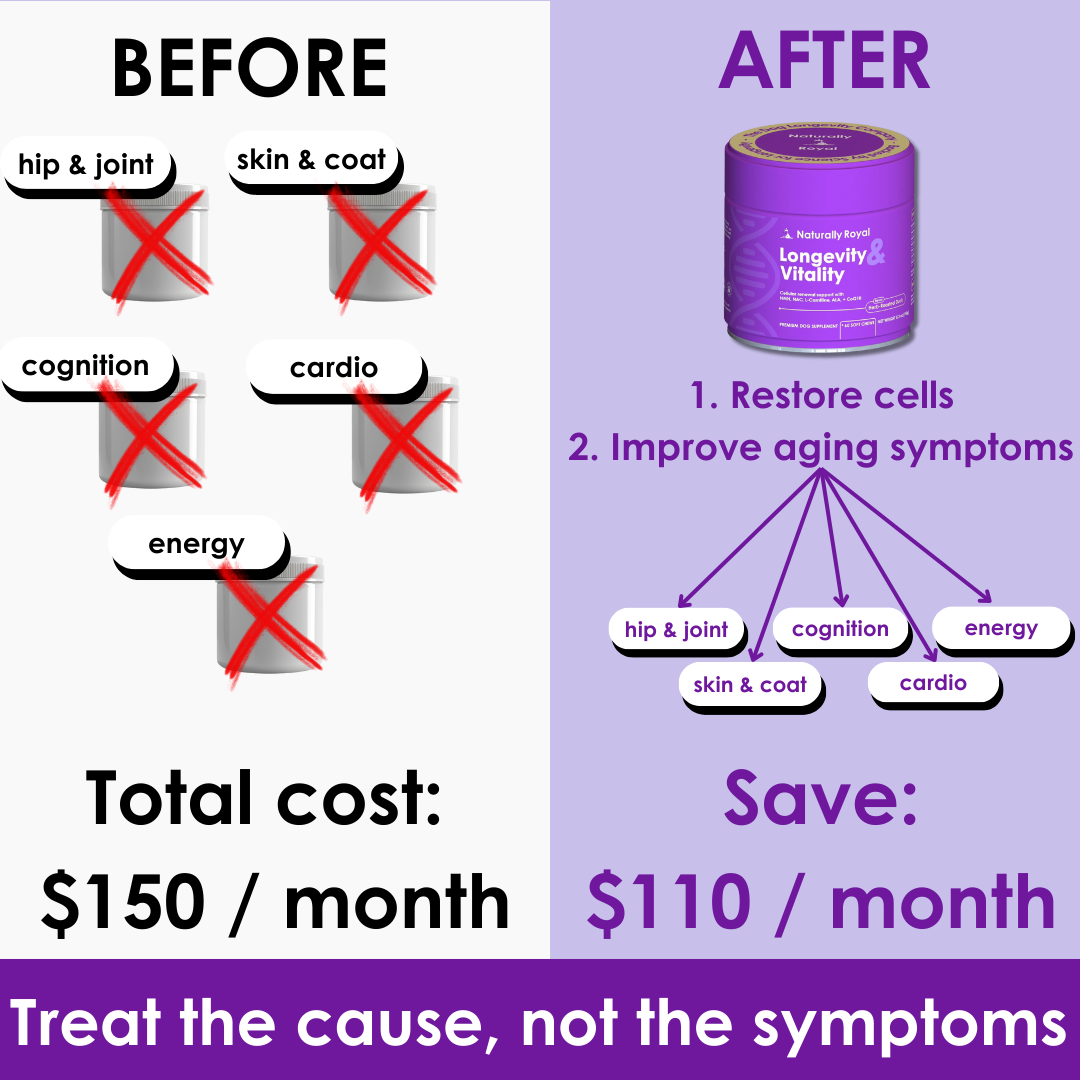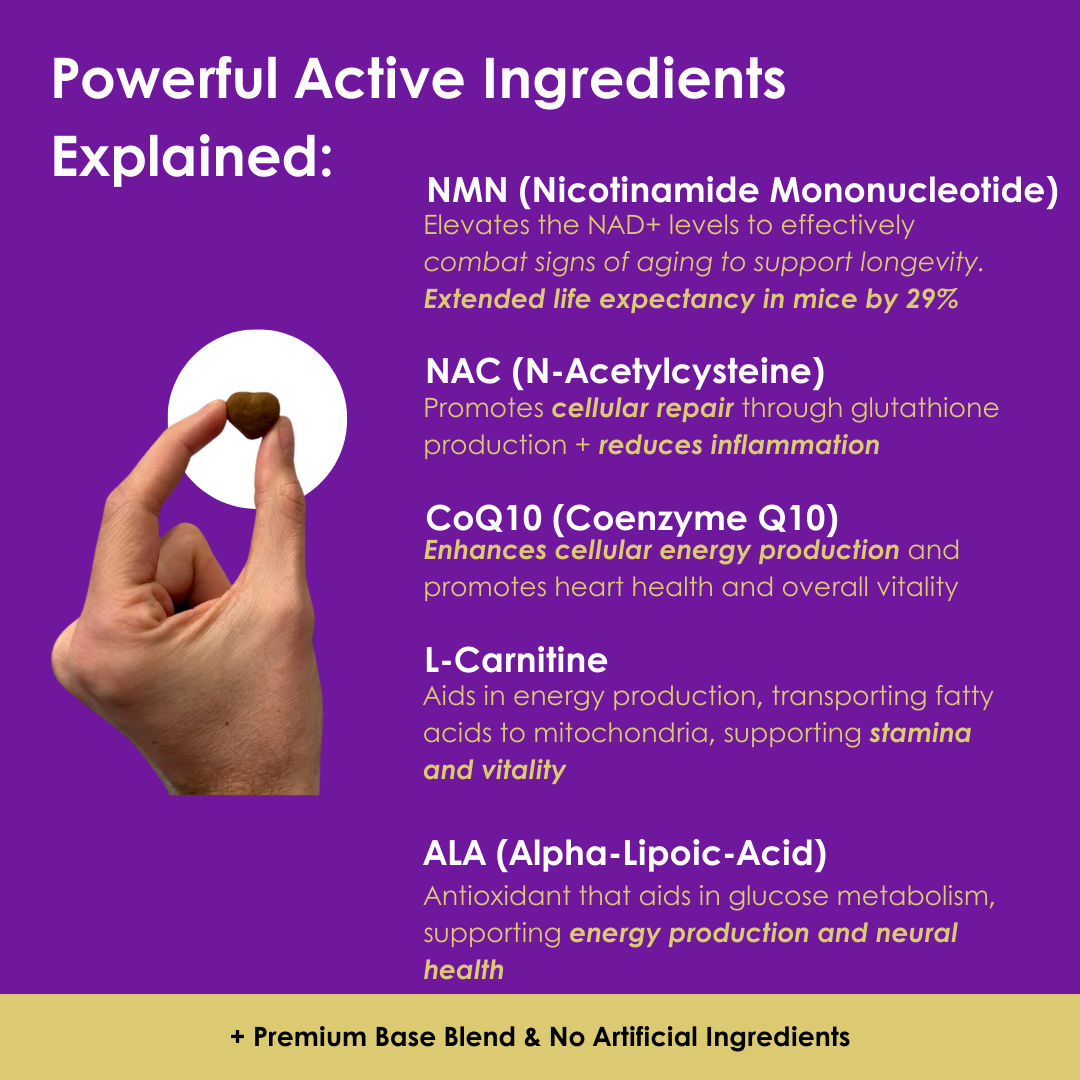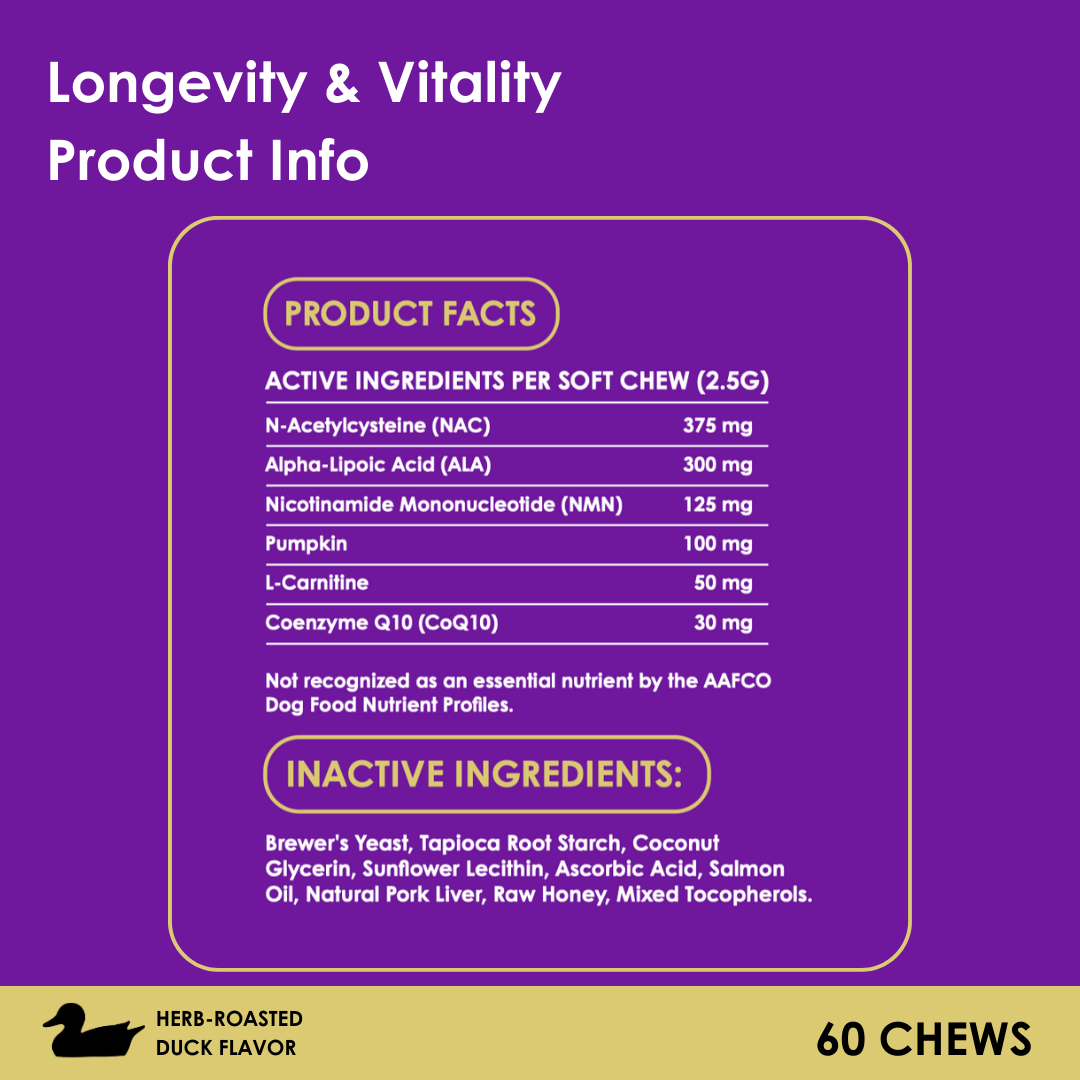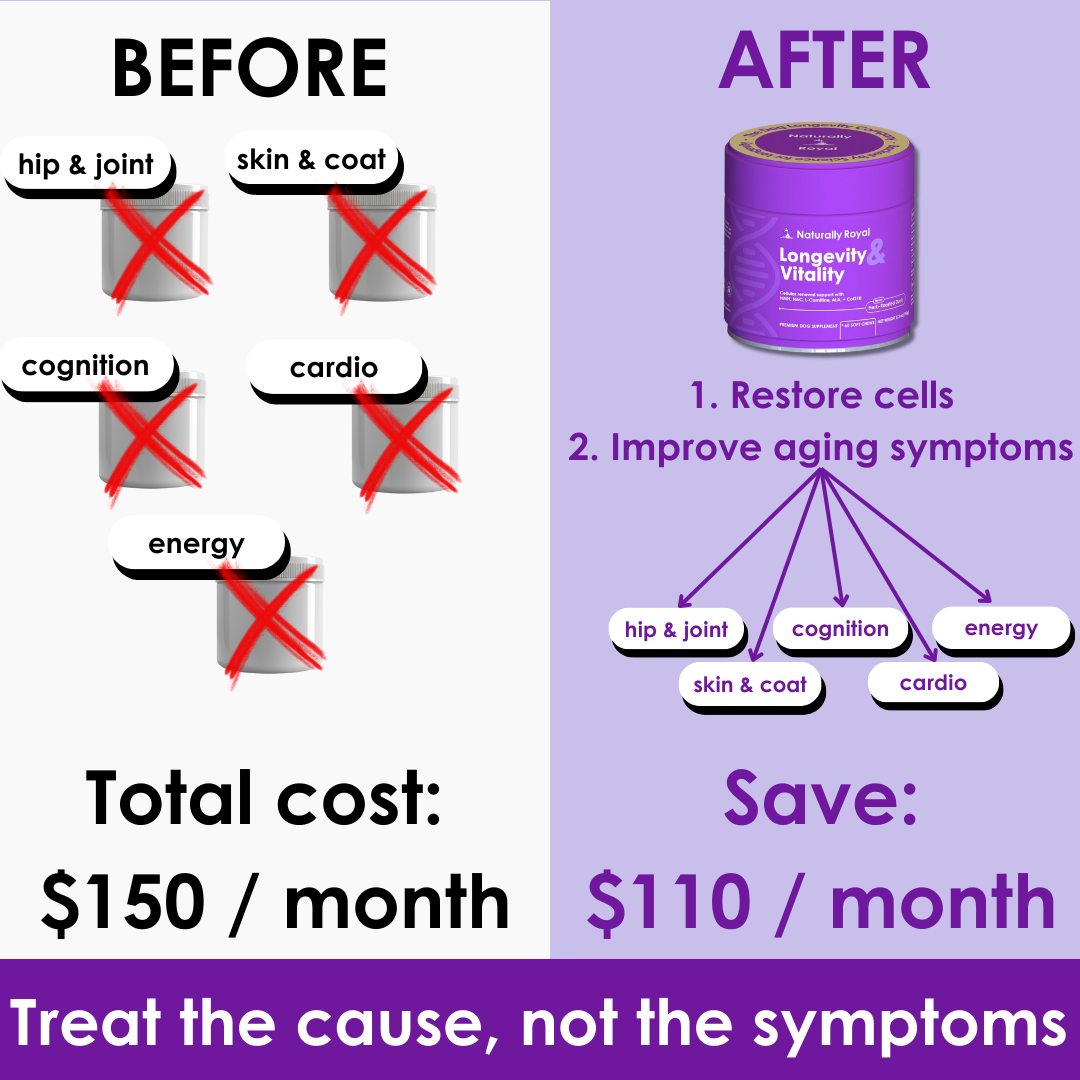How Your Dog’s Gut Microbiome Influences Behavior and Longevity
The gut microbiome, an ecosystem of diverse microorganisms within your dog’s digestive tract, plays a critical role in their health and overall well-being. Recent research highlights an emerging field known as the "gut-brain axis," which explores the connection between gut health and cognitive and behavioral aspects in dogs. From influencing mood and behavior to supporting a robust immune response, the gut microbiome has far-reaching effects that extend to your dog’s longevity. Let's do a deep dive into how the microbiome impacts behavior, how veterinarians and pet owners can support a healthy gut, and what this means for a dog’s lifespan:
The Gut-Brain Axis: A Communication Highway
The gut-brain axis describes the bidirectional communication between the gastrointestinal (GI) tract and the brain. This intricate system relies on multiple pathways, including:
- Neural Pathways: The vagus nerve acts as a direct link between the gut and the brain, allowing signals to travel back and forth, impacting GI and neurological functions.
- Biochemical Pathways: Short-chain fatty acids (SCFAs), serotonin, and other neurotransmitters are produced in the gut, influencing brain health and function.
- Immune Pathways: Gut bacteria modulate immune responses, influencing inflammation levels in the body. This interaction affects brain health and can even impact a dog’s mood and behavior.
Together, these pathways illustrate the profound influence that gut health can have on a dog’s cognitive function, emotional state, and behavioral responses.
Microbiome’s Role in Cognitive Function and Behavior
Behavioral traits like anxiety, aggression, and mood can all be influenced by the balance of microorganisms in the gut. Studies suggest that gut bacteria produce several key neurotransmitters and neuroactive compounds that support normal brain function:
-
Serotonin: Up to 90% of serotonin, a neurotransmitter linked to mood regulation, is produced in the gut. Various microbial strains, such as Candida and Streptococcus, help regulate serotonin production, influencing mood and anxiety levels in dogs.
-
Dopamine: This neurotransmitter, also produced and stored in the gut, plays a role in motivation and pleasure responses. Certain bacteria, like Bacillus, assist in its regulation, which can impact behaviors tied to reward and social interaction.
-
GABA (Gamma-Aminobutyric Acid): GABA helps reduce neuronal excitability, contributing to relaxation and calming the nervous system. GABA production by lactic acid–producing bacteria has shown to help manage stress and anxiety, especially in dogs prone to hyperactivity or stress.
The ability of the gut microbiome to produce these neurotransmitters showcases how gut health impacts behavior directly and underscores the need to maintain a balanced gut microbiome to support optimal brain function in dogs.
Inflammation, the HPA Axis, and Stress Responses
A balanced microbiome is crucial for a healthy immune response, as gut bacteria play a key role in modulating inflammation. Dysbiosis, or microbial imbalance, can lead to chronic inflammation, which affects the central nervous system and alters neurotransmitter function. This can manifest as behavioral issues in dogs, such as heightened aggression or anxiety.
Another component influencing behavior through gut health is the Hypothalamic-Pituitary-Adrenal (HPA) Axis, which manages stress responses. Chronic stress activates the HPA axis, increasing cortisol (the primary stress hormone) levels. Long-term cortisol elevation impacts behavior and can lead to anxiety-driven responses, such as increased vocalization, aggression, and restlessness.
Short-Chain Fatty Acids (SCFAs): Vital Microbial Metabolites
SCFAs, such as butyrate, acetate, and propionate, are metabolites produced by gut bacteria that are essential for health. These metabolites not only provide energy to cells in the gut but also have anti-inflammatory properties, which support brain health. SCFAs play a role in the blood-brain barrier’s integrity and immune system regulation, influencing behavioral health.
Though studies are still ongoing, preliminary research shows that animals supplemented with SCFAs experience reductions in stress-related behaviors, suggesting that maintaining SCFA production in the gut through a balanced microbiome could improve a dog’s mental well-being.
Supporting a Healthy Gut for Behavioral and Longevity Benefits
Maintaining gut health is essential not just for digestion but for mental and emotional stability as well. Here are some practical applications that veterinary practitioners and dog owners can consider:
-
Diet and Nutrition: Balanced nutrition plays a vital role in promoting a healthy gut microbiome. Diets rich in prebiotic fibers help nourish beneficial bacteria. Foods with omega-3 fatty acids and micronutrients, like magnesium and zinc, have shown promise in reducing anxiety behaviors, highlighting the importance of a nutritious diet for behavioral stability.
-
Probiotics and Supplements: Probiotics, specifically those containing beneficial strains such as Lactiplantibacillus plantarum, have been linked to improvements in anxiety and aggressive behaviors. Probiotics that increase serotonin levels may reduce stress-induced behaviors and support a more balanced mood.
-
Fecal Microbiota Transplant (FMT): Though still emerging, FMT has shown promise in dogs with behavioral disorders. For example, a recent study on dogs with idiopathic epilepsy found that an FMT led to improvements in fear and anxiety-like behaviors, demonstrating the potential of this treatment for addressing behavioral issues in dogs.
Longevity Impact of a Healthy Microbiome
Supporting a healthy gut microbiome can be one of the most impactful ways to promote your dog’s longevity. Here’s how gut health directly influences lifespan:
-
Reduced Inflammation: Chronic inflammation accelerates aging and contributes to disease. A balanced microbiome can help manage inflammation levels, preventing conditions linked to premature aging and extending life expectancy.
-
Improved Stress Management: By supporting gut-brain communication, a healthy microbiome helps regulate stress hormones like cortisol. Chronic stress impacts the immune system and overall health, so reducing stress can indirectly support a longer, healthier life.
-
Enhanced Immune Function: Since a significant portion of a dog’s immune system resides in the gut, maintaining a balanced microbiome bolsters immune defense, decreasing the risk of infections and promoting resilience against illness.
-
Stable Mood and Behavior: Behavioral health is crucial to a dog’s quality of life, especially in their senior years. Supporting a calm, well-balanced mood reduces anxiety-driven behaviors, helping dogs age with less stress and enjoy more peaceful interactions.
Conclusion
The gut microbiome’s influence on behavior and cognitive health in dogs is an exciting and evolving field of research. Through the gut-brain axis, a balanced microbiome aids in neurotransmitter production, regulates inflammation, and plays a critical role in stress responses, all of which contribute to a dog’s mental well-being and physical longevity.
Ensuring that your dog’s gut health is supported through a well-balanced diet, probiotics, and routine veterinary care not only enhances their day-to-day quality of life but also sets the foundation for a longer, healthier life. By addressing the gut-brain connection, pet owners and veterinarians can work together to promote holistic well-being, helping our canine companions thrive at every life stage.




